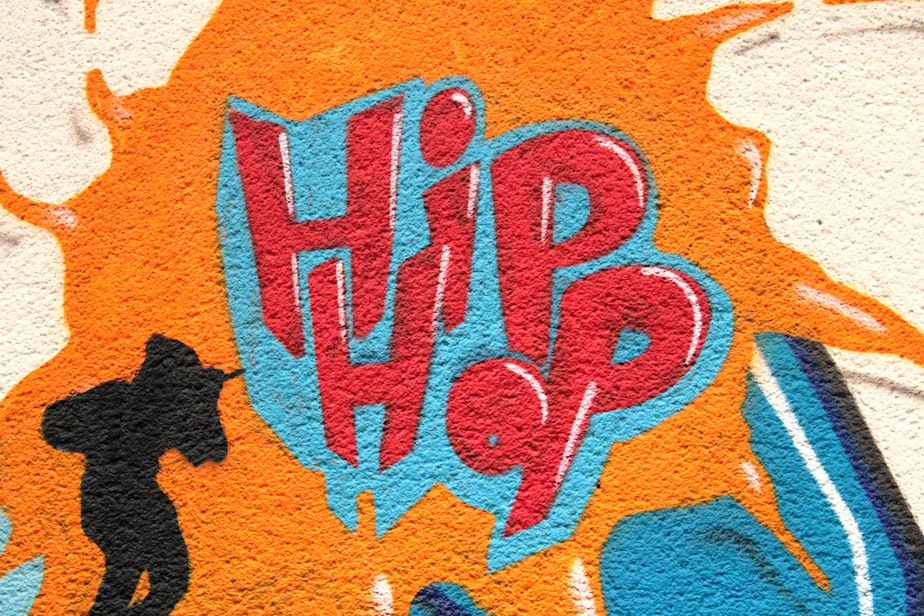What it takes to 'make it' in Seattle's hip-hop scene

Carving out a music career in any city is tough, and there are going to be highs and lows.
But being a hip-hop artist in Seattle comes with its own set of challenges.
KUOW arts and culture reporter Mike Davis sat down with four giants in Seattle's hip hop scene: Stas Thee Boss, Porter Ray, JusMoni, and Larry Mizell Jr.
"These four artists 'made it' in the sense of what making it means in Seattle," Davis said.
"They book the venues, two of them worked at Subpop. You know, they had record deals. One of them had a long time column for The Stranger and is now at KEXP. So I just wanted to know what it means to 'make it' for these artists in Seattle."
But "making it" isn't the same as thriving in Seattle.
"I don't think that Seattle is a sustainable place for Black artists, period," JusMoni said.
Sponsored
"I think that if you're a white artist in the city, you can sustain yourself pretty easily. But like Stas was saying, you gotta hustle for everything here," she added. "You got to knock things down and make your own way, you know? So, do I think it's sustainable? Do I think that people can thrive here? No, I think you have to leave."
Porter Ray agreed.
"There's not a huge percentage of us here," Ray said. "It's just a lack of infrastructure built to support us in the way that other cities and regions can support their artists. and bring awareness to their artists — promote them and market them."
That lack of infrastructure also made working with Subpop, a local record label known for their indie rock artists, difficult.
Stas Thee Boss and Porter Ray both said being signed with the label was a dream come true. And that creatively, the group supported their musical visions. But Subpop's lack of connections limited promotion of their music and image.
Sponsored
"As much as I can tell them, 'Yeah, I want to be on the cover of Essence,' like, they don't have a connection with Essence. Because they're like a grunge rock label," Stas Thee Boss said. "So I think that the problem was ... placement and connections to Black music, to Black people. They don't have that. And there's not really a way that they can do that genuinely, because they're not a Black label."
Instead, the artists have found support in each other, creating Black Constellation. The group is a collective of local artists.
This interview was shortened for time. Listen to the full length conversation with Stas Thee Boss, Porter Ray, JusMoni, and Larry Mizell Jr below:
Mike Davis With Larry Mizell Jr, JusMoni, Porter Ray, and Stas The Boss
KUOW arts and culture reporter Mike Davis sits down with a group of Seattle hip hop artists to learn what it means to "make it" in Seattle.






